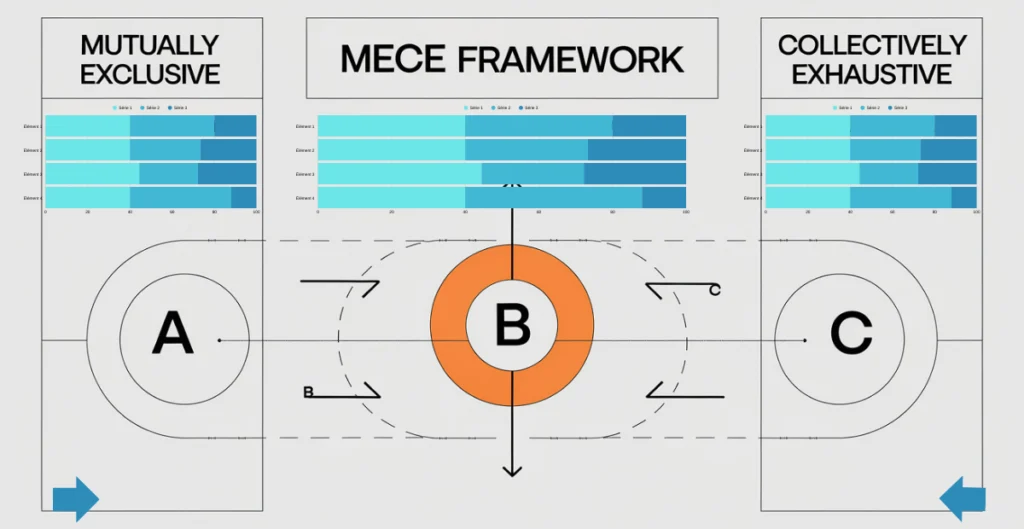Problem-Solving Skills Training That Top Professionals Use and actually work
In today’s complex and rapidly changing world, effective problem-solving skills aren’t just nice to have—they’re essential. Whether you’re navigating workplace challenges, personal dilemmas, or community issues, structured problem-solving skills training can dramatically improve your decision-making capacity and overall success. This comprehensive guide explores proven strategies, techniques, and training approaches that can transform the way you approach problems and make decisions.
The Science Behind Effective Problem-Solving
Understanding the Problem-Solving Process
Problem-solving is a cognitive process that follows distinct phases. According to research from the Harvard Business Review, people who master these phases make decisions up to 50% more effectively than those who approach problems haphazardly.
The core phases include:
- Problem Identification: Accurately defining what needs to be solved
- Information Gathering: Collecting relevant data and context
- Alternative Generation: Creating multiple potential solutions
- Decision-Making: Evaluating options and selecting the optimal approach
- Implementation: Executing the chosen solution
- Evaluation: Assessing outcomes and refining approaches
Dr. Sarah Johnson, cognitive psychologist at Stanford University, explains: “The most significant barrier to effective problem-solving isn’t usually intelligence or creativity—it’s the failure to follow a structured approach. Problem-solving skills training gives people the framework they need to overcome this common pitfall.”
Critical Thinking Techniques: The Foundation of Problem-Solving
Critical thinking serves as the cornerstone of effective problem-solving. A 2023 study published in the Journal of Applied Psychology found that professionals who received critical thinking techniques training resolved complex challenges 37% more effectively than untrained peers.
Key critical thinking techniques include:
- Socratic Questioning: Systematically probing assumptions and evidence
- Logical Analysis: Identifying logical fallacies and inconsistencies
- Systems Thinking: Understanding how components interact within larger contexts
- Cognitive Bias Recognition: Identifying and mitigating personal biases
Comprehensive Problem-Solving Skills Training Approaches
Structured Training Programs: What Works Best
Research-backed problem-solving skills training programs typically incorporate multiple learning modalities. According to the American Management Association, comprehensive training programs yield a 4.5x return on investment through improved decision quality and efficiency.
| Training Approach | Best For | Time Investment | Expected Outcomes |
| Workshop-Based Learning | Hands-on learners | 2-3 days intensive | Immediate skill application |
| Online Courses | Self-paced learners | 4-8 weeks (flexible) | Comprehensive skill development |
| Coaching Programs | Personalized development | 3-6 months (ongoing) | Tailored skill refinement |
| Scenario-Based Training | Applied learning | 1-2 days per scenario | Contextual skill development |
Decision-Making Strategies: Training for Better Choices
Effective decision-making constitutes a critical component of problem-solving. A landmark MIT study found that structured decision-making strategies can reduce decision errors by up to 42%.
Key decision-making training elements include:
Analytical Methods
- Cost-Benefit Analysis: Quantifying pros and cons of each option
- Decision Matrices: Creating weighted evaluation systems
- SWOT Analysis: Assessing strengths, weaknesses, opportunities, and threats
- Pareto Analysis: Identifying the vital few factors from the trivial many
Psychological Considerations
- Decision Fatigue Management: Structuring decision timing and pacing
- Risk Tolerance Assessment: Understanding personal and organizational risk appetites
- Intuition Calibration: Learning when to trust gut instinct versus analytical processes
Creative Problem-Solving: Unlocking Innovative Solutions
Developing Divergent Thinking Skills
Creative problem-solving relies heavily on divergent thinking—the ability to generate multiple, novel solutions. Research from the Creative Education Foundation shows that people trained in creative thinking techniques produce 300% more viable solutions than untrained individuals.
Essential creative problem-solving training components include:
- Brainstorming Protocols: Structured techniques for idea generation
- Lateral Thinking Exercises: Breaking conventional thinking patterns
- Analogical Reasoning: Applying solutions from unrelated domains
- Provocation Techniques: Using deliberate disruption to spark innovation
Case Study: Creative Problem-Solving at IDEO
IDEO, the renowned design and innovation company, implements a systematic creative problem-solving training program that has produced breakthrough innovations for companies like Apple, Procter & Gamble, and Ford.
Their approach centers on:
- Empathic Understanding: Deeply comprehending user needs
- Ideation Volume: Generating hundreds of potential solutions
- Rapid Prototyping: Creating quick, testable versions of solutions
- Iterative Refinement: Continuously improving based on feedback
“When we train people in our creative problem-solving methodology, we see a remarkable transformation,” says David Kelley, IDEO founder. “They move from seeing problems as obstacles to viewing them as fascinating design challenges.”
Analytical Thinking Training: Developing Logical Problem-Solving
Systematic Problem Decomposition
Analytical thinking training focuses on breaking complex problems into manageable components. A 2022 IBM study found that professionals trained in analytical thinking resolved complex technical challenges 28% faster than untrained counterparts.
Effective analytical training approaches include:
- Root Cause Analysis: Identifying underlying issues rather than symptoms
- Process Mapping: Visualizing workflows to identify improvement opportunities
- Data Interpretation Skills: Drawing accurate conclusions from quantitative information
- Hypothesis Testing: Systematically validating or disproving assumptions

Real-World Application: McKinsey’s Problem-Solving Approach
Management consulting firm McKinsey & Company implements a rigorous analytical thinking training program that has become the gold standard in business problem-solving.
Their methodology includes:
- MECE Framework: Ensuring solutions are Mutually Exclusive and Collectively Exhaustive
- Issue Trees: Creating hierarchical breakdowns of problem components
- Hypothesis-Driven Analysis: Starting with potential answers and testing systematically
- 80/20 Rule Application: Focusing on the most impactful aspects of each problem
Integrating Multiple Problem-Solving Approaches
The Hybrid Problem-Solver: Combining Methods for Optimal Results
Research from Northwestern University’s Kellogg School of Management indicates that individuals trained in multiple problem-solving methodologies outperform single-method specialists by 34% when facing novel challenges.
Effective integration includes:
- Method Selection Frameworks: Tools for choosing the right approach for each problem
- Cross-Disciplinary Training: Learning techniques from various fields
- Metacognitive Development: Building awareness of one’s own problem-solving processes
- Adaptive Application: Flexibility in applying different methods as situations evolve
Problem-Solving Skills Training in Practice
Organizational Implementation Strategies
Companies implementing comprehensive problem-solving skills training programs report significant performance improvements. According to Deloitte, organizations with established problem-solving training programs experience:
- 41% higher employee productivity
- 37% improved innovation metrics
- 29% better customer satisfaction ratings
- 23% lower error rates
Successful implementation involves:
- Regular practice opportunities
- Feedback mechanisms
- Peer learning communities
- Leadership modeling of processes
Personal Development Approaches
For individuals seeking to enhance their problem-solving capabilities, research supports several effective approaches:
- Deliberate Practice: Regularly tackling increasingly difficult problems
- Reflective Journaling: Documenting and analyzing problem-solving attempts
- Diverse Problem Exposure: Seeking varied challenges across domains
- Feedback Seeking: Actively requesting input on problem-solving approaches
FAQ: Problem-Solving Skills Training
Q: How long does it take to see significant improvement in problem-solving skills? A: Research from the Carnegie Mellon Learning Lab indicates that most individuals see measurable improvements after 20-30 hours of deliberate practice, with substantial gains occurring within 3-6 months of consistent training.
Q: Can problem-solving skills be effectively taught online? A: Yes. A 2023 meta-analysis of 42 studies found that well-designed online problem-solving training programs produce results comparable to in-person training, particularly when they include interactive elements, practice opportunities, and feedback mechanisms.
Q: Which industries benefit most from problem-solving skills training? A: While all sectors benefit, research shows particularly strong ROI in technology (46% improvement in innovation metrics), healthcare (32% reduction in procedural errors), and financial services (28% better risk management outcomes).
Q: Are some people naturally better problem-solvers than others? A: While natural variation exists in baseline abilities, research consistently demonstrates that structured training significantly improves problem-solving performance regardless of starting point. A Stanford study found that proper training narrowed the performance gap between “natural” problem-solvers and others by 73%.
Conclusion: The Path Forward in Problem-Solving Skills Training
Effective problem-solving skills training represents one of the highest-leverage investments individuals and organizations can make. As complexity and change accelerate across industries and life domains, the ability to systematically approach challenges and make sound decisions becomes increasingly valuable.
By integrating critical thinking techniques, decision-making strategies, creative problem-solving approaches, and analytical thinking training, you can develop a comprehensive problem-solving toolkit that serves you in virtually any situation.
The research is clear: problem-solving excellence isn’t primarily about innate talent—it’s about following effective processes and continuously refining your approach. With deliberate practice and the right training methodologies, significant improvement is within reach for everyone.
Disclaimer: This article provides general information about problem-solving skills training. Individual results may vary based on implementation quality, consistency of practice, and specific contexts.
About the Author
Mark Flourie is a seasoned self-development coach and expert in problem-solving methodologies, with years of experience working with top professionals to enhance their critical thinking and decision-making skills. With a background in cognitive science and extensive training in practical problem-solving techniques, Mark Flourie has helped individuals and teams develop innovative solutions in high-pressure environments. Through his blog, FlourishBoard, and his comprehensive coaching programs, he empowers professionals to refine their problem-solving abilities and achieve sustainable success.
Research Sources
- Harvard Business Review Decision-Making Research
- Stanford Critical Thinking Studies
- Journal of Applied Psychology
- Creative Education Foundation
Call to Action: What problem-solving challenge are you currently facing? Share it in the comments below, and let’s discuss which approach might work best for your specific situation. And if you’ve experienced success through problem-solving skills training, we’d love to hear your story!
Any other feedback or suggestions?
There are no reviews yet. Be the first one to write one.







